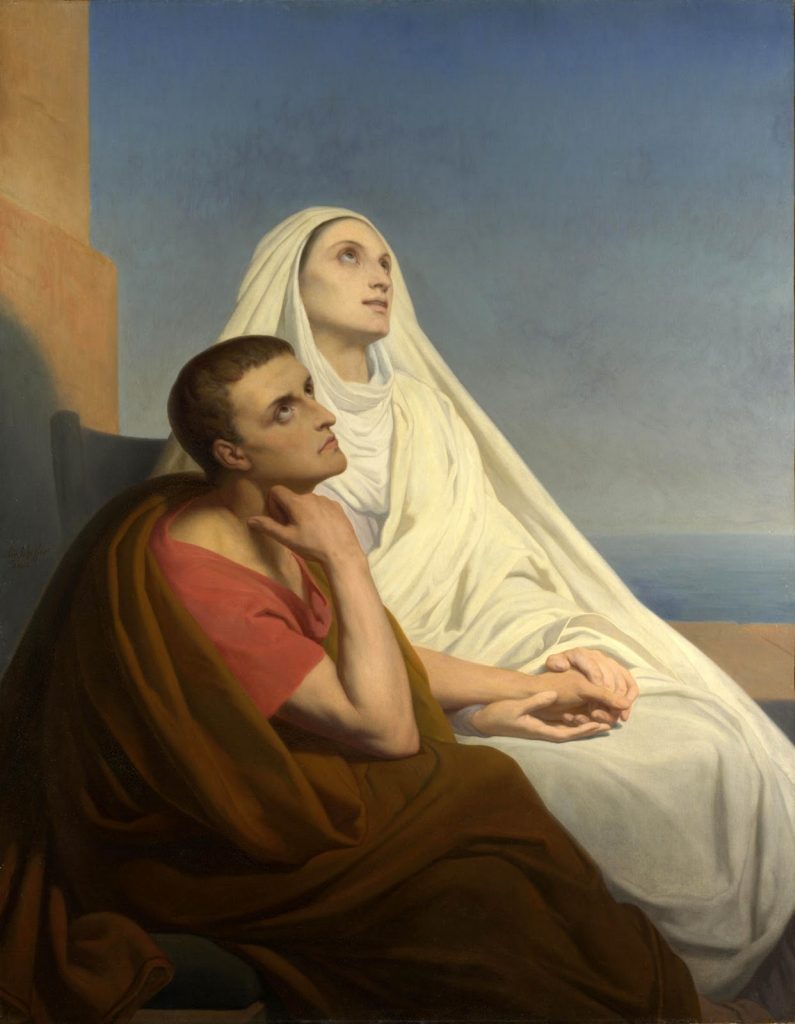* * * *

* * * *
The last post talked about Halloween, and how this year it came five days before Election Day. And how on the day after that election half of America would feel treated, while the other half would feel “tricked;” unhappy, despondent. And how before that election God was no doubt inundated with prayers from both sides, along with lots of begging and pleading.
And speaking of all those prayers, I have a feeling the “treated” half stopped praying and started partying, while the tricked half will move on to doing lots of praying in the coming months. (And years, with the Christians among us keeping in mind the hard parts, like that “love your enemy” thing and how Christ died for the Ungodly, whoever you think they may be.)
But what if you fear that some on the winning half are flirting with the Unforgivable Sin? Do you care, or do you let them “get what they deserve?” One answer comes from Ezekiel 3:16-27, which basically tells you to warn such people about the danger, and how if they ignore your warning you’re okay. However, if you don’t warn them you’ll both be punished. (“Yeesh!”) But what if you won’t have a chance to give such a warning in person? Can you do it indirectly (and thus save your own soul at least)? Saint Monica seemed to think so…
I’ll get to her in a minute, but first here’s more about that most serious of sins. I first read about it when I was young, in Matthew 12:31-32, and it scared the crap out of me:
I say to you, every sin and blasphemy will be forgiven men, but the blasphemy against the Spirit will not be forgiven men. Anyone who speaks a word against the Son of Man, it will be forgiven him; but whoever speaks against the Holy Spirit, it will not be forgiven him, either in this age or in the age to come.
But what the heck does that mean? Years ago Father Watson down in Florida explained it this way. (After I got a bit older.) “If you’re worried about whether you’ve committed the Unforgivable Sin, you probably haven’t.” Then there’s The Unforgivable Sin … Billy Graham: “Only one sin that can’t be forgiven is … the sin of rejecting Him and refusing His offer of forgiveness and new life in Jesus Christ. This alone is the unforgivable sin.” Or this:
The unforgivable sin is interpreted by Christian theologians in various ways, although they generally agree that one who has committed the sin is no longer able to repent, and so one who is fearful that one has committed it has not done so.
(Eternal sin – Wikipedia.) And finally, Are you afraid of the Unforgivable Sin? Don’t be. “If this is your fear, be encouraged. You have not committed the unforgivable sin.“
Which brings up Saint Monica. She was okay with the Lord, but she worried about her son. And so she prayed – but once, “and that continuously” – that he would turn away from his life of debauchery, then repent and turn to Jesus. Ultimately God answered her prayers, but it wasn’t easy. It took 17 years. (Hopefully our prayers won’t take that long).
At first she was the only Christian in her family, but then she started to pray:
Her prayers and virtues first won over her husband and mother-in-law, then all three of her children. Though Saint Augustine is the most well known, this mother, daughter-in-law, and wife made a difference in the lives of her entire family. Saint Monica is seen by many as a model of hope for those whose family members have gone astray.
In other words, “Monica’s only recourse was prayer. She prayed fervently for her family’s conversion, and her prayers began to take hold.” There was a glitch: On his path to Christianity, Augustine embraced Manichaeism. (“[B]riefly the main rival to early Christianity in the competition to replace classical polytheism before the spread of Islam.”)
But that didn’t faze Monica. “There was one problem Augustine would face: his mother’s prayers and faith were powerful.” She kept following him, first to Rome and then on to Milan, and after those 17 long years her son did indeed – finally – repent and turn to Jesus. And so today she is remembered for her “prayerful life dedicated to the reformation of her son.” Who went on to become one of the most important Fathers of the Western Church, which led to this prayer:
Blessed Monica, mother of St. Augustine, we give thanks to our Father in Heaven Who looked with mercy upon your tears over your wayward son. His conversion and heroic sanctification were the fruit of your prayers.
Bottom line? St. Monica prayed that another person – her son – would repent and turn to Jesus, and it worked! That son – Augustine of Hippo – went on to become a Pillar of the Faith and one of the most important of the early Church Fathers. In doing so he brought many new new people to Jesus and – no doubt – many a lapsed Christian back to Jesus.
Could we do the same thing today, following her example? Maybe even someone who says he’s done nothing to apologize for? (Notwithstanding 1st John 1:8.) Let the praying begin…
* * * *

* * * *
The upper image, courtesy of Saint Monica Pray For Us Image – Image Results. It came with a page, “Prayers to St. Monica for Conversions.” Other sources include Saint Monica, Mother of St. Augustine – My Catholic Life, and Augustine of Hippo – Wikipedia. Another note: Popular Christian legends “recall Monica weeping every night for her son Augustine.” (Sound familiar?)
BTW: That Unforgivable Sin comports with Sirach 5:5 (also called Ecclesiasticus), “Do not be so sure of forgiveness that you add sin to sin.”
The Book of Common Prayer reference: The “corporate-mystical” prayer is on page 339, the post-communion prayer for Holy Eucharist, Rite I.
“Feast days” are designated days on the liturgical (church) calendar “set aside to commemorate events, saints, or doctrines that are important in the life of the Church. These can range from Solemnities, which are the highest-ranking feast days like Easter and Christmas, to optional memorials that celebrate lesser-known saints.” Feast Days: Celebrating the Church’s Calendar.
The lower image is courtesy of Augustine of Hippo – Wikipedia, captioned “‘Saint Augustine and his mother, Saint Monica‘ (1846) by Ary Scheffer.”
* * * *